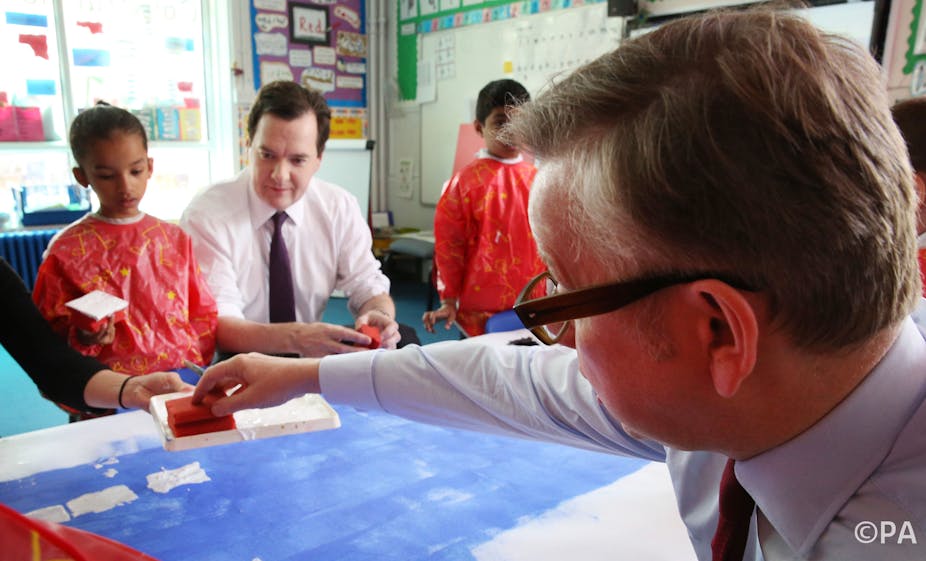Demonstrating her considerable skills as a teacher, in a recent lecture at the University of Birmingham, Estelle Morris posed a question that reminded her audience of the start of a children’s book. “Where are the politicians now?” she asked.
“They’re in the classroom!” she answered, before asking “How did they get there?” and “Should they be there in the first place?”.
Reflecting on her own time in government as well as current policies, the former Labour education minister concluded that it had all gone too far. Politicians would do well to step out of the classroom. Instead, they should set up a body for education that would do the same job that the National Institute for Health and Care Excellence (NICE) does for health: providing a judgement on proposals for changing education at arms-length from government and on the basis of the best available evidence.
Was 1979 a watershed?
Identifying 1979 as a pivotal year in politicians’ relationship with schooling, Morris contrasted political manifestos before and after this date. Before Margaret Thatcher’s election, politicians were preoccupied with who should go to school together: are comprehensive schools good or bad?; should private schools be abolished?
She suggested that around 1979, politicians of all parties realised that changing the organisation of schooling was not the answer. The real difference was made in the classroom.
So after 1979, that’s where the politicians thought they should be. They re-designed the curriculum, they decided which books children should read and which bits of history they should learn, they decided how often children should be tested, they decided how teachers should organise their lessons and which was the best way to teach children to read.
But was 1979 really a watershed for politicians’ belief in their ability to improve the schools by reorganising them? Since that time we have had city technology colleges, grant-maintained schools, foundation schools, specialist schools, academies and free schools. Secretaries of state have taken on more power to close schools they don’t want and to choose which new schools open.
On the day of Morris’s speech, the government announced “an ambitious new accountability system (that) will raise standards across the board”, including introducing new tests for four-year-olds.
These changes have been prefaced by politicians arguing that schools need freedom to do what they know is best. Many headteachers speak of relishing their freedom to run schools for the benefit of the children they teach.
So why have politicians promised to stand back from the school gates only to turn up later in the classroom? Why is it necessary for politicians to make such frequent adjustments to headteachers’ freedom of action?
The frequency and detail of politicians’ interventions in education goes well beyond what used to be called “fine-tuning” in economic policy.
Pulled under the department’s control
By 1979, economic orthodoxy had dismissed the idea that governments knew enough or could act fast enough to manage the economy in any kind of fine-grained manner. In 1998, the task of managing the country’s money was devolved to the Bank of England so that the professionals in the money markets could have confidence that the interests of the economy would not play second fiddle to the interests of politicians.
The reverse has happened in education. Between 2011 and 2012 the government closed its “arms-length” agencies and drew all of their work into the department for education under the more direct control of the secretary of state. Do politicians really know so much more about education than they do about the economy?
The proposal by Morris for an education version of NICE has its attractions. If “arms-length” works for the Bank of England, (though arguably not so cleanly for the NHS), why not for education? Surely an independent assessment of evidence on best practice for schools has to be welcomed?
But there are some problems. First, is there enough evidence to review? For example, the NHS currently spends over £1 billion a year on research through the National Institute for Health Research (NIHR). Between 2010 and 2012, government spending on educational research at the Department for Education was cut by 59% in real terms from £32m to £13m. The cumulative effect of this kind of difference is that not only a much smaller volume of research on education but a much smaller and less secure knowledge base.
In addition, what is the incentive for politicians to get out of the classroom now they’re in? There is enormous scope for changes to teaching and testing which sound plausible enough to the electorate. It is easier to talk with voters about requiring children to learn a modern foreign language than it is to explain what you are doing about quantitative easing and fiscal cliffs.
It is no accident that becoming secretary of state for education puts you on a ladder rather than a snake. Finding politicians in the classroom looks odd from the perspectives of “rolling back the state” or “public sector reform”. But it would take a politician with a new sense of direction to allow NICE and NIHR equivalents to take centre stage in education.

